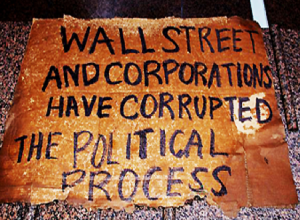After two months of gaining traction and worldwide attention, the future of the Occupy movement is in question after police on Tuesday swarmed the birthplace of the social inequality protests in lower Manhattan’s Zuccotti Park. Citing mounting health and sanitation concerns, police arrested hundreds as they forcibly evicted protesters.
Orders for the predawn police crackdown came from New York City Mayor Michael Bloomberg, who had reportedly attempted to negotiate with protesters for several weeks.
A judge on Tuesday night confirmed that city officials could put a ban on tents and camping in the park. But it seems that no officials can prevent protesters from simply protesting—The New York Times on Wednesday reported that “several hundred protesters” had returned to Zuccotti Park, sans sleeping gear.
Protesters in Rochester seem to be similarly undeterred. Last week, Rochester Mayor Thomas Richards agreed to permit protesters to “live” in downtown Rochester’s Washington Square Park 24 hours a day. This victory came after a flurry of arrests of protesters who tried to stay in the park past 11 p.m. — a violation of Rochester’s municipal code.
Richards agreed to allow protesters to occupy the park until Jan. 11, 2012, bowing in part to pressure from a series of labor unions and civil groups that rallied around protesters.
UR graduate student Bill Finan, who has been involved with protests in Rochester since they commenced in October, said Wednesday that he does not believe the events unfolding in New York City will have that big of an impact on Occupy Rochester.
“Occupy Rochester is growing stronger and will not be affected by what happened in Zuccotti Park, except perhaps [by] marching in solidarity with the occupiers in NYC within the next few days,” Finan said.
He is, however, slightly disillusioned with the movement and specifically the turn things have taken in Rochester. He described the mood as “divisive” between the “core Occupiers” and other groups that have taken up the cause, such as MetroJustice and Take Back the Land, which Finan said are focused more on issues than on occupation.
“With the atmosphere there now, there is not much question that the mayor will allow them to stay,” Finan said.
The question, though, is if the occupation can succeed in the social change that was the movement’s initial impetus.
Some protesters in New York City are reportedly optimistic that their message has been heard, but others, like Finan, believe that the objectives have been lost.
“It seems that the act of physically occupying a space has taken precedence over the core issues of the 99 percent, nationally and locally,” Finan said. “When an occupation is interfered with, the physical occupation becomes the focus rather than the issues, slowing down and diverting the original message of Occupy.”
Buletti is a member of the class of 2013.


